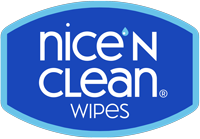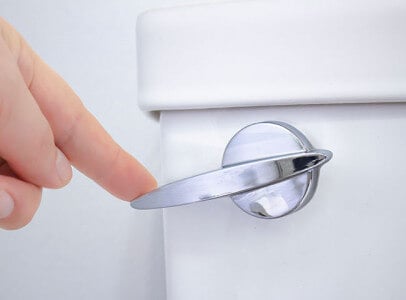Are Biodegradable Wipes Really Biodegradable?

Wet wipes offer a convenience that people love. Whether you’re cleaning your baby’s bottom or your countertops, chances are, you use wet wipes in some form or fashion.
If you are interested in lessening your carbon footprint on this earth, choosing biodegradable wipes is a decision that can better protect the environment and help keep plastic out of landfills.
In this article, we’ll go over what biodegradable means, the difference between biodegradable and compostable wet wipes, how biodegradable wet wipes are made, and which brands offer them.
What does biodegradable mean?
First things first -- what’s the definition of biodegradable? According to Merriam-Webster, something that is biodegradable is “capable of being broken down especially into innocuous products by the action of living things.” In other words, the material can be broken down by microorganisms like bacteria and fungi and returned to nature.
Some common biodegradable materials include wood, cotton, wool, paper, bamboo, and rubber.
What are biodegradable wipes?
You may be asking, "what are biodegradable wet wipes?" Biodegradable wipes, unlike conventional wipes which may contain plastic, are made of plant-based natural materials that break down easier in the earth. To be considered biodegradable, they must be made of 100% biodegradable fibers.
What’s the difference between biodegradable and compostable wipes?
The main difference between biodegradation and composting is that biodegradation happens naturally and composting requires human intervention.
Compostable materials are biodegradable only under specific conditions created by a person. This typically involves contributing the water, light, oxygen, and organic matter necessary to break down the material. If someone cannot create the optimal conditions for composting, then the material is biodegradable, not compostable.
As far as wet wipes are concerned, biodegradable wipes will break down naturally over time, while compostable wipes are guaranteed to break down under specific compostable conditions.
As you make the decision for which type of natural wipes to use, consider a compostable wipe only if you have the conditions needed to compost readily accessible.
LEARN MORE: Biodegradable Wet Wipes for the Whole Family
What are biodegradable wipes made of?
Biodegradable wet wipes are made of only natural ingredients. Using plant-based materials that are naturally occurring on the planet ensures that they will break down into the soil when they are properly discarded.
Common materials used in biodegradable wipes include:
- Bamboo
- Cotton
- Wood pulp
- Viscose rayon
How long does it take biodegradable wipes to decompose?
Biodegradation is a naturally occurring process that can take as short as a few days to as long as multiple centuries. For example, vegetables typically biodegrade in about five days, a paper towel takes approximately 2-4 weeks, leaves take about a year, and styrofoam cups and plastic bags can take 500 years or more to biodegrade.
There are many environmental factors that affect the rate of biodegradation. Some of these factors are light, oxygen levels, temperature, mechanical compression, and chemicals in the environment.
If you're still on the fence, conventional baby wipes can take up to 100 years to break down. Biodegradable wipes, on the other hand, fully break down in a matter of weeks.
How do you dispose of biodegradable wipes?
Similar to conventional wipes, the best way to dispose of biodegradable wipes is to discard them in the trash. Biodegradable wipes will decompose in landfills.
Certain biodegradable wipes, such as Nice 'N CLEAN® SecureFLUSH™ Technology Flushable Wipes can be flushed down the toilet (as many as 5 at a time!). Conventional wipes, such as baby wipes, hand wipes, and surface wipes, should never be flushed down the toilet. Always check the packaging to make sure the wet wipe is septic-safe. If in doubt, throw it out with the garbage!
Which brands offer biodegradable flushable wipes?
Now that you know all about biodegradable wipes, you may want to go out and buy some. Some moist toilet tissue brands to consider are Nice 'N CLEAN® SecureFLUSH™ Technology Flushable Wipes, which break apart five times faster in water than the leading toilet paper does. Other biodegradable options include Cottonelle® GentlePlus™ Flushable Wipes, and Pura Toilet Tissue Wipes. Studies show that using moist toilet tissue is healthier and more hygienic than using dry toilet paper alone.
Help protect the planet, one wipe at a time
Biodegradable wipes are a great choice for the environment and your family. They break down much faster than conventional wipes and help reduce waste in our landfills. While they may not be a perfect solution, they are certainly superior to wet wipes that contain plastic.
READ: The Nice 'N CLEAN Brand's Commitment to Sustainability
References:
- https://www.merriam-webster.com/dictionary/biodegradable
- https://www.chicagotribune.com/consumer-reviews/sns-bestreviews-personal-care-the-best-biodegradable-wipe-20190823-story.html
- https://www.treehugger.com/biodegradable-compostable-difference-5094376
- https://www.thelessen.com/eco-friendly-products/bathroom/eco-friendly-flushable-wipes/




